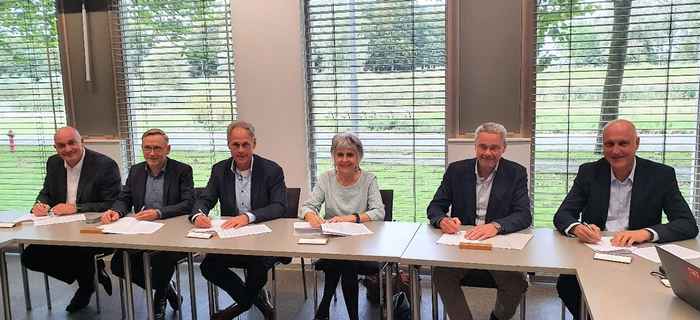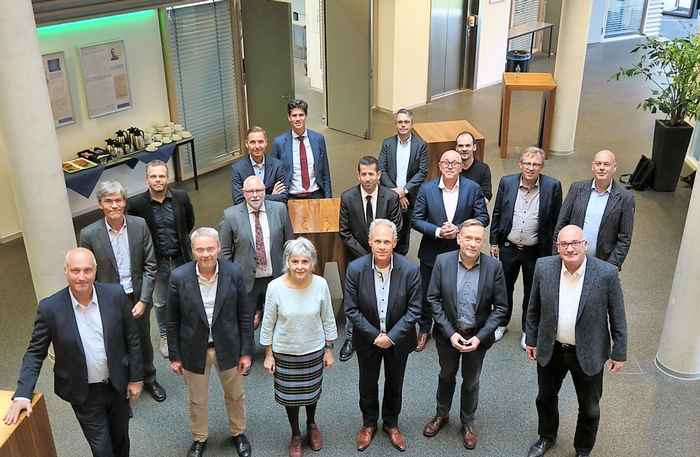UvA signed Memorandum of Understanding for Quantum Application Lab
26 October 2021
The participants in Quantum Application Lab (QAL) are: the Netherlands Organisation for applied scientific research (TNO), the national research institute for mathematics and computer science (CWI), the Dutch collaborative ICT Organisation for Dutch higher education and research (SURF), TU Delft (on behalf of QuTech and Quantum Inspire), the Netherlands eScience Center and the University of Amsterdam (UvA).
QAL will fulfill the much-needed connection between scientific developments of quantum hardware and software and demand-driven solutions for e.g. optimization, simulation, and machine learning. Embedded in the Quantum Delta NL (QDNL) ecosystem, QAL will accelerate the construction of a social and economic innovation infrastructure for quantum computing and the knowledge, capabilities, and competencies required for this. QAL will do this by identifying promising domains for quantum computing applications and executing projects together with scientific, industrial, and/or private sector partners.
The QAL partners are developing a public-private partnership that will bridge the gap between academic research and industrial applications of quantum computing to solve some of our most pressing societal challenges in the area of health care, energy, technology and security. They will set up collaborative projects to explore and develop quantum applications with added value for other research and industrial partners.
Prof. Ton de Kok, the scientific director of CWI opened the day’s activities with a welcome address to participants. This was followed by presentations given by Prof. Harry Buhrman, the group leader for algorithm and complexity at CWI and Prof. Kareljan Schoutens, Professor of Theoretical Physics at the University of Amsterdam. Signing the MoU is a momentous occasion to mark the beginning of a consortium that’s now open to innovation and quantum acceleration.
Rapid transformation
Quantum computing is rapidly transforming from a specialist theory in physics to a source of new technologies, economic growth, and workforce development opportunities. While still a nascent technology, its potential is actively being explored across many sectors. The fields of chemistry, automotive, logistics, biotech, finance, the energy and power industry, and a host of other sectors stand to benefit from quantum’s computing and simulation capabilities. And more generally, quantum computing is also expected to be used in a variety of applications for the rapid training of machine learning models and to create optimized algorithms.
As a national, open innovation and trans-disciplinary collaboration between public and private organisations, QAL is providing for all necessary conditions and infrastructure that lead to robust quantum computing application development. We cover the whole chain from problem identification and dissection into different (mathematical) parts, to implementation of existing classical solutions and development of novel quantum algorithms, benchmarking and optimisation based on multiple quantum computing architectures, and intimate knowledge of the needs of potential users.

